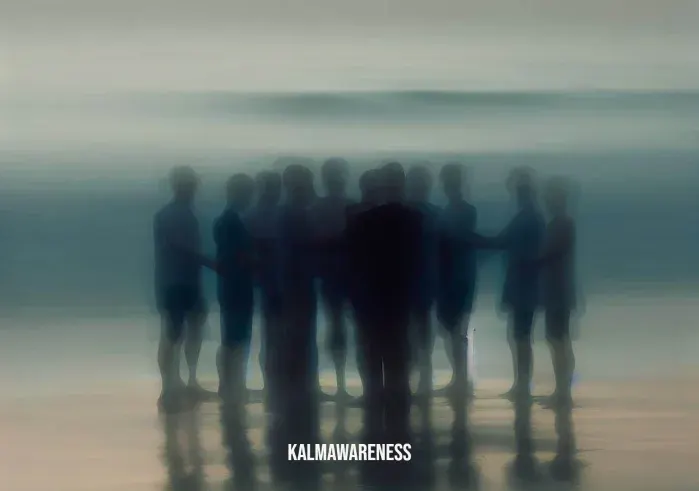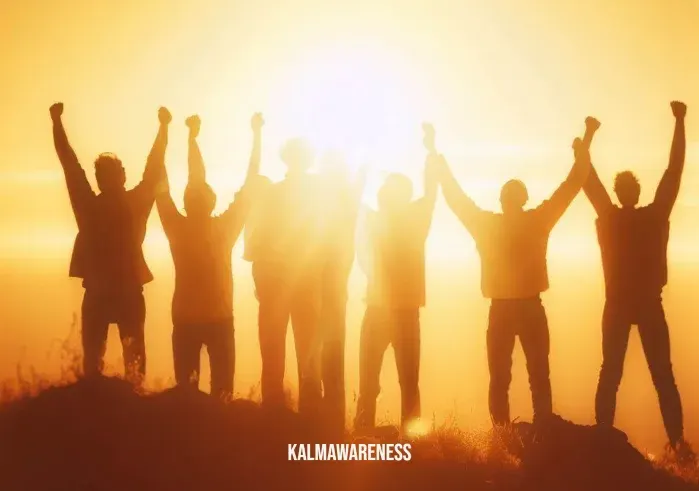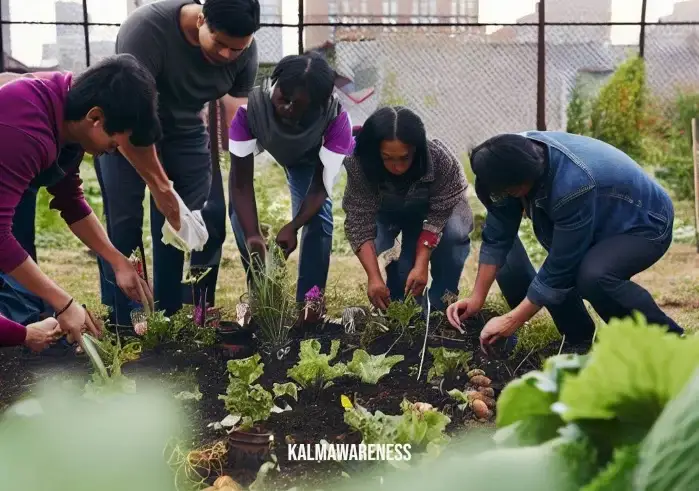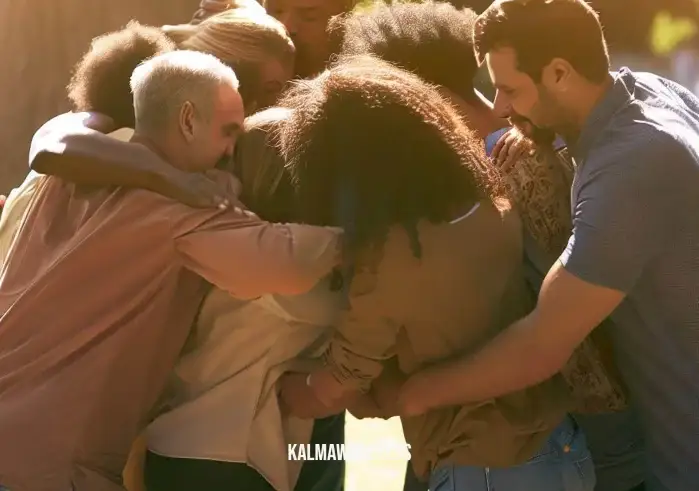Grateful for or Grateful to: A Study in Thankfulness and Personal Growth
In this journey of life, there are many things and people to whom we are “grateful for” or “grateful to”. The semantic difference between these two phrases may seem minimal, but their impact on our emotional wellbeing and personal growth is profound.
The Importance of Gratitude
In today’s fast-paced world, where it’s easy to focus on what we don’t have, gratitude helps you see what’s there instead of what isn’t. It’s not just about saying thank you for the coffee, but genuinely recognizing the effort someone made to provide it.
There is an element of humility and respect in the expression “grateful to”. For instance, when you say, “I am grateful to you” the focus is on the person who has done something that benefits you. This is an acknowledgement of their effort or kindness, a recognition of their role in your life.
Conversely, when we say we are “grateful for” something, we’re focusing on the thing or event itself, rather than the person who made it possible. It’s a subtle difference, but one that impacts our relationships and self-awareness.
Circle of Gratitude
Living in a circle of gratitude, where we regularly acknowledge and appreciate the people and experiences in our lives, can profoundly impact our overall happiness. But it can be a challenge, particularly when we’re feeling ungrateful.
Yet, with practice, we can shift our perspective. A grateful calendar can be a tangible reminder to celebrate the small joys in life, from appreciation for nature to a well-deserved self-five for our achievements.
“Being grateful doesn’t mean that everything is necessarily good. It just means that you can accept it as a gift.” – Sue Monk Kidd
Feeling gratitude and not expressing it is like wrapping a present and not giving it. When we choose to be “grateful, grateful, truly grateful“, we open ourselves to the beauty in the world and within ourselves.
That’s our starting point for this exploration of gratitude, acknowledging its place in our lives and our personal growth journey.
I invite you to continue this journey in the next part of this article, where we will delve deeper into the practice of gratitude. You’ll learn about gratitude exercises, understand why sometimes we may feel ungrateful, and get to explore gratitude in different aspects of our lives like work and personal relationships.

Practicing Gratitude: Techniques and Impacts
Learning to be consistently “grateful for” or “grateful to” requires practice. But like any skill, the more we engage with it, the more naturally it becomes. There are numerous ways we can cultivate this skill, and we’ll explore some effective techniques here.
Gratitude Exercises
- Gratitude Journal: This is a practice of regularly writing down things you’re grateful for, as recommended in our gratitude experiment. It helps you cultivate an attitude of gratitude and appreciation for life’s blessings.
- Gratitude Letters: Write a letter to someone to whom you’re grateful but haven’t expressed your gratitude to. It doesn’t have to be a humble thank you, but heartfelt words of appreciation.
- Daily Affirmations: Making a statement of gratitude as part of your daily affirmations can reinforce positive feelings. It could be as simple as “I will be grateful” or a specific gratitude tuning statement” that resonates with you.
- Mindful Gratitude: Being aware of the present moment and grounding into gratitude can help you appreciate life’s simple pleasures, like the aroma of your morning coffee or the warmth of the sun on your skin.
- Gratitude Reminders: Set reminders to take a moment of gratitude throughout your day. It’s a way to live gratefully and uncover the secret contentment that comes from appreciating what we have.
Here is a comparison of the different gratitude exercises and how they might be helpful in different situations.
| Gratitude Exercise | When to Use | Potential Benefits |
|---|---|---|
| Gratitude Journal | Daily, preferably in the morning or before bedtime | Improves mood, reduces stress, promotes better sleep |
| Gratitude Letters | Whenever you feel the need to express appreciation | Strengthens relationships, promotes positive feelings |
| Daily Affirmations | Daily, preferably in the morning | Sets a positive tone for the day, boosts self-esteem |
| Mindful Gratitude | Throughout the day, especially during stressful times | Enhances mindfulness, reduces stress, promotes wellbeing |
| Gratitude Reminders | Anytime during the day | Encourages consistent practice of gratitude, enhances mood |
However, there are times when, despite our best efforts, we may find ourselves asking, “why am I ungrateful?” It’s important to remember that gratitude is a journey, not a destination. There will be ups and downs, but each step is an opportunity for growth and deeper understanding of ourselves.
As we conclude this part of our exploration into gratitude, I invite you to join me in the next chapter where we will delve into the world of gratitude in different aspects of life, like the workplace and personal relationships, and how gratitude reciprocates in wonderful ways.

Gratitude in Different Aspects of Life
In the journey of gratitude, it is essential to recognize the different spheres of our lives where we can practice being “grateful for” or “grateful to”. From personal relationships to our professional lives, the practice of gratitude can significantly impact and enhance our life experiences.
Gratitude in Personal Relationships
When we express gratitude towards people in our lives, it fosters positivity and deepens our relationships. As the saying goes, “What we appreciate, appreciates.” A simple act of telling a friend or a family member, “I am grateful for you” or “I am grateful to you” can make a world of difference.
As Oprah Winfrey once said, “Be thankful for what you have; you’ll end up having more. If you concentrate on what you don’t have, you will never, ever have enough.”
Consider expressing gratitude towards your loved ones through a gratitude calendar, dedicating a day to each person for whom you are thankful.
Gratitude at Work
Workplaces can often be sources of stress and competition. But even in such an environment, expressing gratitude can enhance positivity, boost morale, and improve relationships. Reflect on the things to be grateful for at work and do not hesitate to express your appreciation. A little bit of appreciation goes a long way in creating a positive and engaging work environment.
Albert Schweitzer, the renowned humanitarian, once said, “At times our own light goes out and is rekindled by a spark from another person. Each of us has cause to think with deep gratitude of those who have lighted the flame within us.”
Gratitude Towards Life
The practice of gratitude also extends to life itself. When we appreciate life, every moment becomes meaningful. Embrace the perspective that life is about the moments that take your breath away. In the words of Brother David Steindl-Rast, a monk and interfaith scholar, “It is not happiness that makes us grateful, but gratefulness that makes us happy.” Start each day with a good morning gratitude ritual and experience the transformation it brings.
Let’s now turn our attention to the dynamic aspect of gratitude, how it changes us and the world around us. A grateful life not only enhances our own well-being but also impacts those around us. As we express gratitude, we realize that gratitude reciprocates, leading to a virtuous cycle of positivity and goodwill.
As we bring this chapter to a close, I invite you to continue to the next one where we’ll explore how we can help others cultivate gratitude and how gratitude impacts our overall health. We’ll delve into the teachings of various gratitude gurus, as well as the ways we can nurture gratitude in children, thereby fostering a future generation rooted in appreciation and positivity.

Cultivating Gratitude and Its Impacts on Health
Cultivating gratitude is an enriching and fulfilling process. It doesn’t just impact us on a psychological level, but can also have profound physiological effects, enhancing overall well-being. This chapter explores the benefits of fostering gratitude, its impacts on our health, and how we can incorporate it into our daily lives.
The Art of Cultivating Gratitude
Cultivating gratitude may appear challenging at first, but with consistency and practice, it becomes an integral part of our lives. Some practical methods to cultivate gratitude include maintaining a gratitude journal, meditating on gratitude, and expressing gratitude in interactions with others. These small but significant practices enable us to focus on the positive aspects of life, helping us to be grateful truly.
According to Melody Beattie, “Gratitude unlocks the fullness of life. It turns what we have into enough, and more. It turns denial into acceptance, chaos to order, confusion to clarity. It can turn a meal into a feast, a house into a home, a stranger into a friend.”
| Methods to Cultivate Gratitude | Benefits | Challenges |
|---|---|---|
| Gratitude Journal | Promotes reflection and self-awareness | Requires consistency |
| Gratitude Meditation | Brings inner peace and calmness | Needs practice |
| Expressing Gratitude | Improves relationships | Involves vulnerability |
Gratitude and Its Impact on Health
Practicing gratitude has been linked to various health benefits, both psychological and physical. It can aid in stress management, improve sleep, and even boost the immune system. Indeed, it can be your secret to live gratefully and healthily.
Robert Emmons, a leading scientific expert on gratitude, noted, “Those who regularly practice grateful thinking do reap emotional, physical, and interpersonal benefits. Adults who keep gratitude journals on a regular basis exercise more regularly, report fewer illness symptoms, feel better about their lives as a whole, and are more optimistic about the future.”
| Health Benefits of Gratitude | Explanation |
|---|---|
| Stress Management | Gratitude helps shift the focus from stressors to positive elements in life |
| Improves Sleep | Counting blessings instead of problems promotes better sleep |
| Boosts Immune System | Positive emotions enhance the body’s immunity |
The journey of gratitude is indeed a fulfilling and enriching one, with its numerous benefits and transformative powers. However, the journey doesn’t end with us; it extends to our families, communities, and future generations.
In the next chapter, we’ll delve deeper into how we can nurture gratitude in children, the role of gratitude in strengthening communities, and the influence of gratitude gurus. Join us as we explore these aspects and more, providing you with comprehensive insights into the power of being “grateful for” or “grateful to”.

Gratitude: Its Impact on Children, Communities, and The Influence of Gratitude Gurus
The journey of cultivating gratitude is far-reaching, extending beyond individual growth to encompass family, community, and even influencing future generations. In this chapter, we focus on the nurturing of gratitude in children, the role gratitude plays in strengthening communities, and the profound influence of gratitude gurus.
Fostering Gratitude in Children
Children are the future and cultivating gratitude in them is crucial for developing positive mindsets, promoting empathy, and fostering resilience. Here’s how you can encourage your child to be grateful for small and big things alike:
Model Gratitude: Children learn by observing adults. Be mindful of your actions and expressions of gratitude. Show them that it’s good to be grateful.
Cultivate Mindful Thankfulness: Teach children to say “thank you” and mean it. It’s not just about politeness, but about truly appreciating kindness and acknowledging it.
Promote Generosity: Encourage children to share and give. It helps them understand the joy of giving, making them appreciate their own blessings more.
As quoted by William Arthur Ward, “Feeling gratitude and not expressing it is like wrapping a present and not giving it.”
Gratitude’s Role in Strengthening Communities
Gratitude has the power to create a ripple effect, positively impacting communities. Showing appreciation towards each other fosters unity, promoting a sense of belonging and mutual respect. It’s in these moments we realize we’re grateful to each other for the harmony and support that comes with community living.
Communities that cultivate gratitude experience lower levels of stress and loneliness, and higher levels of satisfaction and empathy. People become more resilient and capable of facing collective challenges.
Ralph Marston quoted, “Make it a habit to tell people thank you. To express your appreciation, sincerely and without the expectation of anything in return. Truly appreciate those around you, and you’ll soon find many others around you. Truly appreciate life, and you’ll find that you have more of it.”
The Influence of Gratitude Gurus
There are many gratitude gurus who’ve significantly influenced the way people perceive and practice gratitude. They’ve shared their insights, personal experiences, and practical tips, enabling others to live a life filled with gratitude.
Brother David Steindl-Rast: A Benedictine monk known for his work around cultivating gratitude as a spiritual practice. His work at Gratefulness.org has had a profound impact on millions.
Kristin Armstrong: A celebrated author who spoke about the healing power of gratitude in her life, especially during challenging times.
Brene Brown: A research professor who highlighted the importance of gratitude in embracing vulnerability and experiencing joy.
As Melody Beattie puts it, “Gratitude makes sense of our past, brings peace for today, and creates a vision for tomorrow.”
The exploration of gratitude and its impact on our lives does not end here. In the next chapter, we’ll delve into the relationship between gratitude and personal growth, how gratitude can enhance your professional life, and the scientific research supporting the power of gratitude. Stay with us as we further unravel the concept of being “grateful for” or “grateful to”.

The Ripple Effect of Gratitude: From Personal Growth to Workplace Harmony
As we conclude our exploration of the power and reach of gratitude, we delve into the realms of personal development and professional life, and then bring everything full circle with a look at the scientific research that supports all we’ve discussed so far.
Gratitude and Personal Growth
When it comes to personal growth, gratitude plays an essential role. The more we practice gratitude, the more we open ourselves to recognizing and appreciating the good in our lives, which can lead to a more profound sense of satisfaction and overall well-being. The concept of being “grateful for” or “grateful to” in our personal growth journey isn’t just about acknowledging the positive aspects of our lives. It’s also about appreciating the challenges and obstacles we’ve overcome, as they’ve played an essential role in shaping us into who we are today.
As Charles Dickens put it, “Reflect upon your present blessings, of which every man has many, not on your past misfortunes, of which all men have some.” In other words, adopting a gratitude tuning statement as part of your daily routine can lead to a more positive outlook on life and a heightened sense of self-awareness.
Gratitude in the Workplace
Gratitude in the workplace can contribute to a positive work culture, leading to improved productivity and job satisfaction. Recognizing and appreciating employees’ efforts can foster a sense of belonging, boost morale, and encourage teamwork. Even a simple gesture, such as saying “thank you for the coffee” to a co-worker, can have a positive impact.
In a professional setting, practicing gratitude can make us feel more fulfilled and content in our jobs, making challenges more manageable. As author and motivational speaker Simon Sinek said, “Working hard for something we don’t care about is called stress. Working hard for something we love is called passion.”
The Science of Gratitude
Now, let’s look at the scientific support for all we’ve been discussing. Various studies have highlighted the numerous benefits of practicing gratitude, including improved mental health, decreased levels of stress and depression, and even better sleep.
A gratitude experiment conducted by Dr. Robert A. Emmons and his team found that people who kept gratitude journals exhibited increased well-being compared to those who didn’t. The act of writing down what they were grateful for helped participants become more aware of the good things in their lives, resulting in a more positive outlook and better mental health.
In conclusion, it’s clear that gratitude has a wide-reaching impact, from personal growth to community-building, from children’s development to workplace harmony. And the beauty of it all is that gratitude is free and infinite. We can express it at any time, to anyone, about anything, whether it’s being grateful for nature or expressing thanks for a co-worker’s assistance.
If you’ve enjoyed this journey through the power and reach of gratitude, continue exploring our collections and blog posts for more enlightening and enriching reads. Remember, every step taken in gratitude brings us closer to living a more fulfilled and content life.



